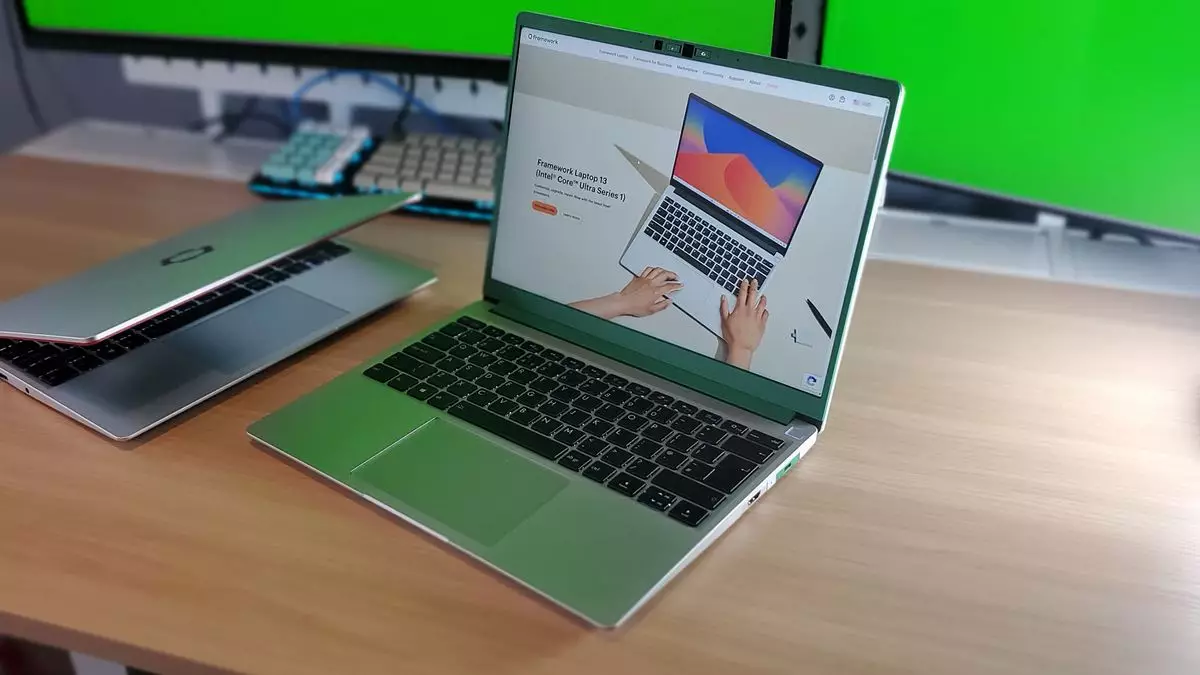In an increasingly interconnected world, technology thrives on global partnerships and supply chains. Yet recent developments surrounding tariffs—particularly those imposed by the Trump administration—are casting significant shadows over this landscape. Hardware manufacturers like Framework and Nintendo have found themselves facing major disruptions, highlighting the detrimental ripple effects of trade policies on innovation and consumer choice. With the imposition of tariffs not just altering prices but potentially stifling growth, the questions surrounding the efficiency of these measures demand careful examination.
Framework, a relatively new player focusing on modular laptops, recently announced delays in the availability of some of its core products due to a 10% tariff on imports from Taiwan. Their transparent communication revealed shocking truths: the cost of doing business has escalated to the point where it would be unsustainable to offer lower-end models without incurring losses. This raises pressing inquiries about how well these tariffs truly serve the intended goals of fostering domestic industry and reducing dependence on foreign manufacturing.
Alongside Framework, the tech giant Nintendo was also caught in this tumultuous wave, reflecting how tariffs impact all echelons of the tech ecosystem—from small startups to established brands. These developments illustrate an essential paradox; the tariffs are ostensibly aimed at protecting American industry yet are ultimately undermining the ability of companies to serve the consumer effectively.
The Semiconductor Conundrum
Taiwan stands as a formidable leader in electronics manufacturing, primarily due to the presence of TSMC, the world’s largest semiconductor manufacturer. While semiconductors themselves have enjoyed an exemption from tariffs, products using these chips do not have the same privilege. As a result, companies that rely on Taiwanese production find themselves between a rock and a hard place. Reckoning with soaring production costs and an uncertain market, these manufacturers face mounting pressure to make tough choices—such as pausing sales of certain models.
The tumultuous tariff environment exacerbates a situation that should be characterized by creative ingenuity and technological advancement. Rather than facilitating growth, tariffs often foster unforeseen complications. Framework’s struggle to navigate the shifting terrain is not just a tale of higher prices; it embodies the broader concerns about how external economic pressures can stifle technological evolution.
A Culture of Transparency Amid Confusion
What sets Framework apart is its commitment to transparency. Many companies in similar positions might opt for silence, fearing backlash or alienation of customers. However, by openly discussing the ramifications of tariffs, Framework shines a light on an uncomfortable yet critical truth: these impacts are widespread across consumer good makers. The fleeting gains of tariffs may cloud individual corporate assessments, but they force companies to recalibrate the entire financial structure of their offerings.
This culture of transparency could serve as a guiding principle for others in the industry, pushing manufacturers to share their challenges with consumers rather than shield them behind corporate silence. Offering insight into the pricing structure could foster a more informed customer base, understanding the real costs behind their purchases, thus paving the way for a shift towards more sustainable consumption practices.
Hope Amid the Uncertainty
As Framework temporarily halts the sales of its more affordable laptops, it does so with a sliver of hope that the situation may improve. This uncertainty can breed anxiety for both manufacturers and consumers; however, it also underscores an important narrative of resilience and adaptability. Companies that can navigate these turbulent waters effectively, with innovative solutions and customer-centric strategies, will likely emerge as frontrunners in the tech industry.
The immediate future appears bleak, with strategic decisions taken in haste often leading to unintended consequences. Still, the voices of manufacturers like Framework signal a potential for change in how companies engage with their customers concerning issues like tariffs. The road ahead may be fraught with challenges, but it also holds the promise of an industry that prioritizes its core values of innovation and connection above all. In an era where tariffs blur the lines between local and global business, it is the committed transparency and fortitude of companies that may illuminate a path toward a brighter and more collaborative future in technology.

